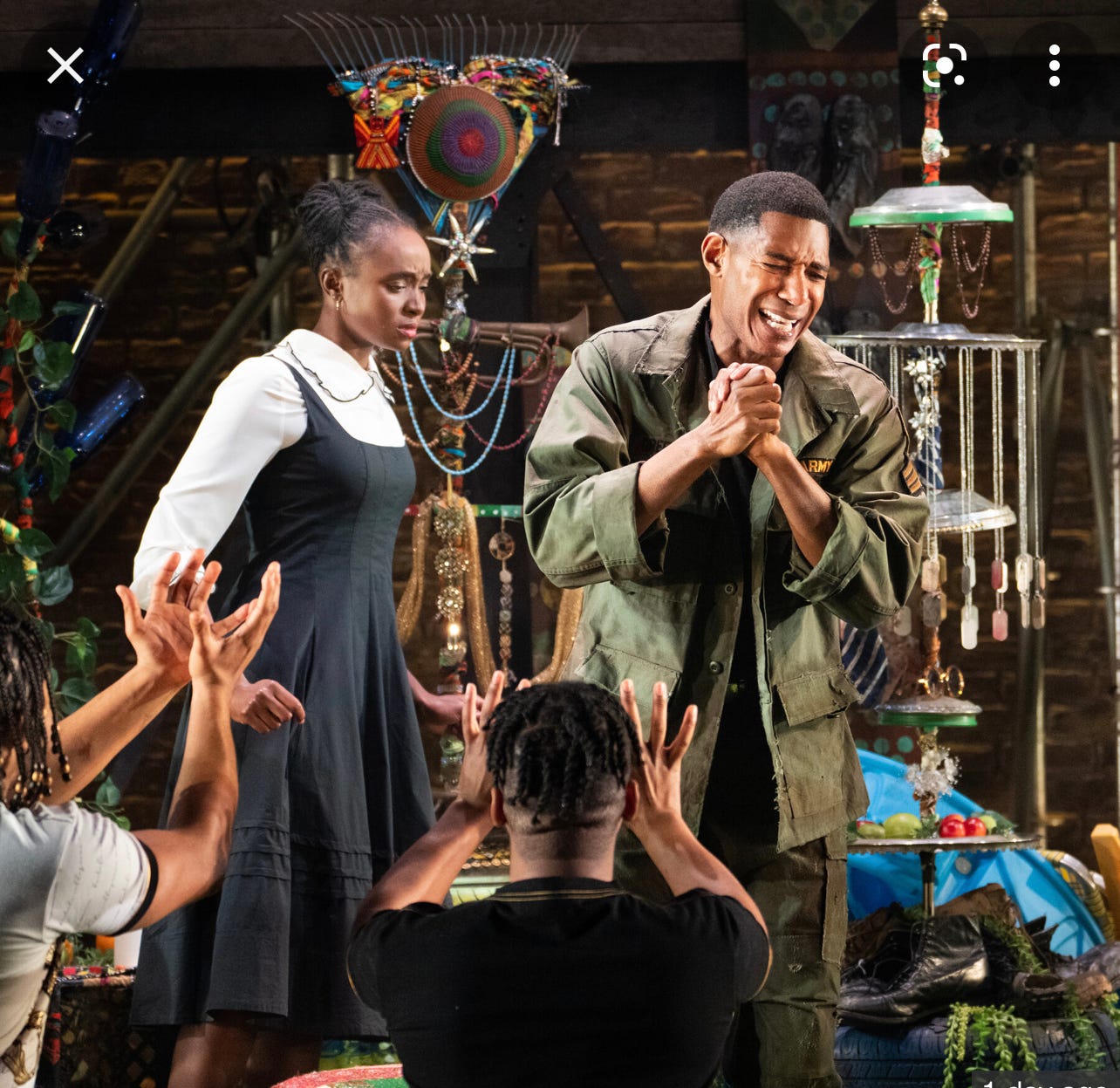Theater: “On Sugarland” at NYTW
“Sugarland,” Aleshea Harris’s remarkable new play at New York Theater Workshop, is set in a cul-de-sac—“where the road ends,” as one of the characters says. Seems at first as if we are in a small Southern town. Actually we’re the farthest thing from it.
Sugarland is actually a mythical place inhabited by plainspoken people who memorialize the family and friends that have died in the War. (Not sure which war but that doesn’t matter as we discover.) The residents have turned a small garden into a shrine decorated with medals and other memorabilia of the fallen.
Corporal Saul Greenwood (Billy Eugene Jones, a double for Denzel Washington) has returned from the War with a damaged foot and a fierce determination to get back to the action. Addis (Caleb Enerhardt), his mentally challenged
son, idolizes him (says he carries dad’s “warrior blood”) and wants to accompany him back to battle, much to Saul’s dismay.
Young Sadie (Kiki Layne), who claims she can raise folks from the dead, recounts tales of her female ancestors who fought to the death against men that abused them. She is especially haunted by the memory of her mother, who disappeared in the War. Sadie is raised by her mother’s sister Odella (Adeola Rose) a beautiful but lonely alcoholic.
Meanwhile two sisters, Tisha (Lizan Mitchell), the mother of a dead soldier, and Evelyn (Stephanie Berry) squabble among themselves when they are not in mourning. Evelyn is given to parading around in elaborate costumes and acting the diva, much to the consternation of her down-to-earth sister—and the amusement of the audience.
Which brings me to the humorous tone of “On Sugarland,” a play based on Sophocles’ Greek tragedy “Philoctetes.” The execution at times may seem weird, and the message is grim (i. e., war is hell and those who are called to fight it are often Black and poor), but the overall tone of the play is often very funny. And if it isn’t funny, it’s wildly theatrical. A scene of “hollering”—whereby the community honors a dead person by collectively screaming cathartically—is spine-tingling.
The set design by Adam Rigg is jaw-droppingly wonderful, and the ensemble is outstanding—replete with so many individual tours-de-force it would take up too many gigabytes of space to honor each of them properly. But this brand
of excellence is what you’d expect from New York Theater Workshop—a company that gave us “Hadestown,” “Once,” and “Slave Play.” “On Sugarland” is sure to follow in their footsteps. A tragedy, you should pardon the expression, if you missed it.



